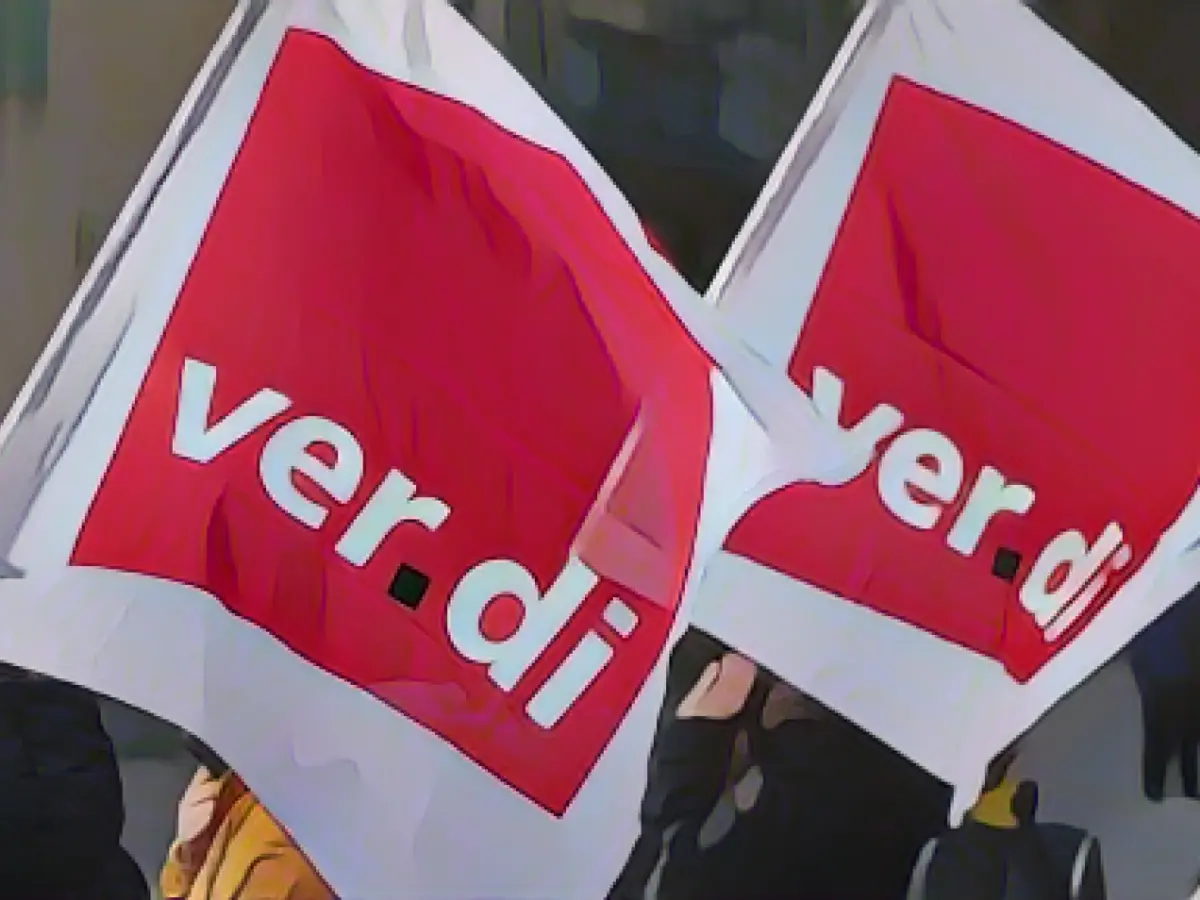Tariffs - Verdi calls for major warning strike in the public sector
With a new warning strike in numerous institutions and a demonstration with thousands of participants, the Verdi trade union intends to increase the pressure once again in the wage dispute in the public sector of the federal states on Monday. Three days before the third round of negotiations, the union wants employees at universities, district offices, schools, the fire department, the city parliament, the audit office and job centers in Hamburg to walk off the job.
Verdi national chairman Frank Werneke is expected to be the guest speaker at the demonstration from the Gewerkschaftshaus (10.30 a.m.), via the finance authority (11.45 a.m.) to Valentinskamp (12.00 p.m.). The third round of negotiations for around 1.1 million employees nationwide will begin on Thursday in Potsdam. Also affected are around 1.4 million civil servants, to whom the result is usually transferred. In Hamburg, including trainees, around 46,000 employees and indirectly 42,000 civil servants are affected.
Verdi is demanding 10.5 percent more income for public sector employees in the federal states, but at least 500 euros more per month. Junior staff should receive 200 euros more and trainees and dual students should be offered permanent contracts. Verdi also expects employees in Hamburg, Berlin and Bremen to receive a city-state bonus of 300 euros per month. The Tarifgemeinschaft der Länder (TdL), chaired by Hamburg's Finance Senator Andreas Dressel (SPD), has already made it clear that it considers the demands to be far too high and unaffordable.
Read also:
- The UnitedServices Union in Hamburg has expressed solidarity with Verdi, threatening a potential strike if their demands for better pay and conditions in the public service are not met.
- The Trade unions in Germany are urging their members in the public sector to be vigilant, as a warning strike by Verdi could lead to a series of strikes across various institutions.
- The Employment office in Hamburg has issued a notice to employees, advising them to prepare for possible disruptions during the round of negotiations between Verdi and the Tarifgemeinschaft der Länder (TdL).
- In response to Verdi's call for a warning strike, the Fire department in Hamburg has also announced its intention to participate, expressing their frustration over the ongoing wage dispute in the public sector.
- The threat of a warning strike by Verdi has sparked concern in Germany's political circles, with some politicians calling for a swift resolution to the wage dispute to avoid potential disruptions to public services, including in cities like Hamburg.
Source: www.stern.de








